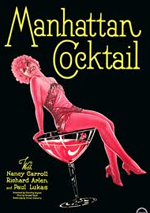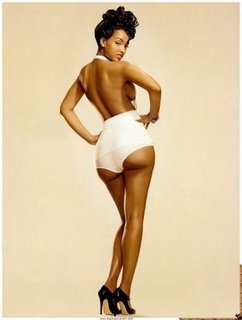
Dying, Sweetly
I promised I would never tell this to another living soul. But Sido has been haunting my dreams for weeks and I cannot keep my secret any longer.
I was a schoolgirl when I first saw her; she was walking alone near my school on a luminous evening when everything seemed to come alive in the cool, silvery moonlight. A mist covered the courtyard, which gave the impression that this mysterious stranger was floating across the grounds. Even from my window I could feel her power overtaking me. When she looked up at me–sensing that she was being watched–she paused for a minute, flashing me an amused smile of recognition. She tipped her hat in my direction with an air of masculine gallantry, and then I watched her move languidly past the ancient, ivy-covered buildings until she was out of sight.
The next time I saw Sido, she was standing over my bed when I awoke in the night. I had no idea how she had entered my room, since I always locked my door, or how long she had stood there watching me sleep. But I somehow sensed her presence even when I was asleep. Tossing in my little bed under her gaze, I could feel her dark, magnetic eyes staring intensely at my face and body, as though she knew I already belonged to her.
I was afraid, but I was also drawn to her by a force I had never felt. She was the most irresistably beautiful creature I had ever seen, and yet there was nothing soft or girlish about her. Seeing her standing before me, her strong jaw illuminated by the moonlight, I was spellbound by her brooding masculine melancholy and the directness of her ardor. She wanted to feast on me, she said, while removing her hat and black velvet cape with a flourish, but in a cruelly romantic gesture she sought to protract and heighten her pleasure by refusing me mine. I trembled as she caressed my body, breathing so fast that my corset, which I wore nightly, rose and fell with my tumultuous respiration. I threw my arms around her neck, drawing her closer to me so I could whisper my desires in her ear, blushing at the wild passions she had aroused in me. I flirted, flattered, and begged, but none of my tactics worked.
What she wanted, she said as she showered me with soft kisses, was for me to obey her irresistable law. “Your little heart is wounded,” she murmured in her seductive, low voice. “If your dear heart is hurt, my wild heart bleeds with yours. In the rapture of my enormous passion, I will live in your warm life, and you shall die–die, sweetly die–into mine. I cannot help it; as I draw near to you, you in your turn will draw near to others, and learn the rapture of that cruelty, which yet is love.”
Gazing upon me with eyes that were all fire, Sido asked for my consent to her dark love. “For years I have watched and waited for you. I have been in love with no one, and never shall, unless it be you. But love will have its sacrifices. There is no sacrifice without blood. Will you die as lovers die–to die together, so that we may live together?”
Yes, I would, I passionately declared, yes.
I never felt more full of life than at that moment when I offered myself to her. She kissed me longer and more deeply than I had ever been kissed, and then I felt her warm kisses moving lovingly across my throat. My heart beat faster. Overwhelmed by a frenzy of passion, my breathing rose and fell as I gasped for air in my tightly laced corset. Sido slowly loosened the laces and I suddenly felt a stinging pain as if two large needles plunged, an inch or two apart, deep into my breast. I screamed and my senses left me then, as though a narcotic of unusual influence was acting upon me and lulled me into a deep sleep.
A noise caused me to wake up suddenly. In the soft light from the lamp that burned in the hallway, I saw Sido leaving my room, her white shirt bathed in blood.
****************
Wishing you a bewitching and magical All Hallow’s Eve from Sublimefemme!
This little tale is my butch-femme remix of J. Sheridan Le Fanu’s classic story “Carmilla,” the first lesbian vampire story in English. It was published in 1872.
Filed under: femme for the holidays, Lesbian & Queer Genders | Tagged: butch/femme, Happy Halloween!, lesbian vampires | 4 Comments »







